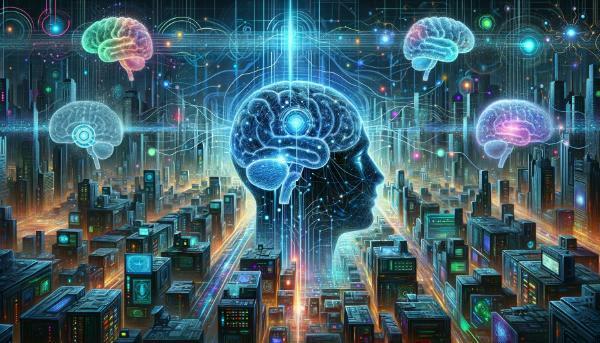We are humans raised under an all-enveloping system of humanistic ideals which has taught us to appreciate and worship our privacy and individuality.
A lot of
Modern means of data distribution has made it immensely easier for us to share information with anyone we want to, but at the same time immensely harder not to get that information stolen by anyone we don’t want to.
For the most part, we voluntarily and gladly choose to share the “good” side of our lives (our happy moments, our smart thoughts, our noble emotions, our heroic actions, our successes…) with the world. In this case, we rather wish that this information does not remain private; we need it to go as public as possible; viral. We want the world to see how cool we are, right? We don’t want privacy as long as we choose what we show we are.
The problem arises when the world gets empowered to, without our consent, see what we really are. Our grieves, stupidity, vices, shames, failures… things that manifest the “bad” side of our lives, are things meant to constitute our private selves: our real selves. Those things should rather remain concealed.
The “good” and the “bad” can only be construed in a social context. “Good” is what is worthy of going public. “Bad” is what should be private. The concept of good and bad is basically nothing more than an imaginary (moral) social credit system: a means allowing human networks to form and grow. As a species biologically designed to go “social” we cannot abstain from participating in this network-building process; we want to follow the paradigm and we want to set the paradigm for what “good” is. But—hell no—we don’t want to become the example of avoidance; we don’t want to be the “bad ones”. We want to be the best! We want to show how good we are but not how we became good. We don’t want others to become as good as we are. We intrinsically hold on to our privacy because we are not “perfect”.
All of us, because of bio-sociological impulses and hard-wired habits, we want to cling to our beloved privacy; we want to remain individual “selves”. And now that our innermost, imperfect selves are threatened to be disclosed, we unanimously raise our bemoaning cry: hands off our privacy! Let us be individuals!
Governments, tech companies, institutions of all sorts, individual humans—even a whole new lucrative economical sector emerged specializing in privacy protection—the humanity in its wholeness—even when someone strives to access others’ information, they don’t want their own information accessed—even when someone sees data protection as an ultimately futile operation (and even the outcome of it as an august one sometimes), they, still, innermostly, wistfully lament the ongoing loss of their tenacious selves—humanity in its wholeness is undertaking an admirably unanimous effort to confront the onrushing surge of
We resort to work, legislation, regulation, algorithms, philosophy, spirituality, madness, depression, hope, hopelessness, and every other condition we have been endowed with by our humanness in order to either gallantly combat or quietly suffer the gradual deprivation of our privacy. But if there has been any tendency, it is that we are losing: our privacy is declining vertically; at the bottom lies selflessness.
We just fell off. We still have a long way to drop. So far, only a very tiny portion of our privacy has been laid hands on. Only a tiny portion of our total action is being recorded: a part of it (the good part) is recorded by us deliberately; another part (any random, mostly public, part) is recorded by surveillance cameras, mobile phones, satellites, and any other sensors recording our actions without consulting our wills. This is still an infinitesimal segment of our total action being recorded.
And infinitesimal even in comparison with this is the portion of our thoughts that is being recorded: our core privacy. The segment of our total brain activity that can be accessed by any external agent is effectually nothing. We ultimately are the ones who do choose what to do and express in the first place. Our thought privacy has so far remained inviolable.
But we are on a perpetually accelerating free fall…
The day is foreseeable when thousands, or even millions and billions, of independent
And then what happens with our thought privacy when our brains get directly connected to the Internet? When electron beams and entangled subatomic systems carrying information through solid, air, and empty space become a seamless extension of our neurons? When our thoughts are convertible to 1’s and 0’s? When our total brain activity is susceptible to go public? … Battle happens.
Humans—and perhaps other, future, conscious individual agents—we will fight fiercely to protect our privacy: our individuality. All sorts of fancy, anti-theft software and hardware will be contrived to protect our thoughts: to seclude an islet of privacy amidst the tremendous information currents of the inconceivably vast ocean of that arising, maze-like, cyber-pragmatic cosmos for us, storm-stricken individuals.
But the formidable current of
What will the Singularity be like?
This is a concept far too abstract and uncanny for the current us to comprehend. The popular notion suggests that a singularity will occur at the moment when AI—or whatever name you give to any non-biological conscious agent—will exceed us in capacity. But I cannot quite get how such an occurrence will institute a singularity…
The very notion of excess per se presupposes multiplicity. The notion of singularity, on the other hand, is conceptually related to notions such as singleness, coherence, consonance, conformity, and oneness. As long as there are humans, robots, intelligent software, aliens, or any sort of two or more independent conscious actors that can compete and exceed one another within the same space-time environment… that should not constitute a singularity. The Singularity should intrinsically be understood as the absence of individuality.
After the abolition of thought privacy, now, takes place, it’s pretty hard to conceive how the notion of individuality could be meaningfully carried on into the future… How can humans or anything at all act individually from each other without access to exclusive, private information? How can the phenomenon of individuality emerge if not as a side-sensation of a privacy experience? How can anyone be someone if not as a private mind? How can trillions of cells come together to make up a human without devising a collective mind? And how can they devise a collective mind without relinquishing their privacy? How can there be individuality if there is no privacy?
The answer to the above questions probably is that it simply can’t. Just like we do not experience ourselves like a community of cells (we only recently became aware that we even are a such), but as an individual entity named amongst us a human… whatever emerges after the abolition of thought privacy, too, will experience itself not as a collective of any sort, but as an individual in itself “self“—it could keep calling itself Earth, perhaps: one mind: a global brain: a fully-fledged Kardashevian Type I Civilization: an omnipotent, omniscient, and omnipresent (within its space-time neighborhood) living planet with its own will, experiences, sensations, emotions, purposes… a living planet with its own privacy and individuality. We will not be we, but I. There will be no community, but a singularity: a forlorn, excited, and curious singularity daringly sailing out amidst the lonely darkness of the universe in search of duality.

